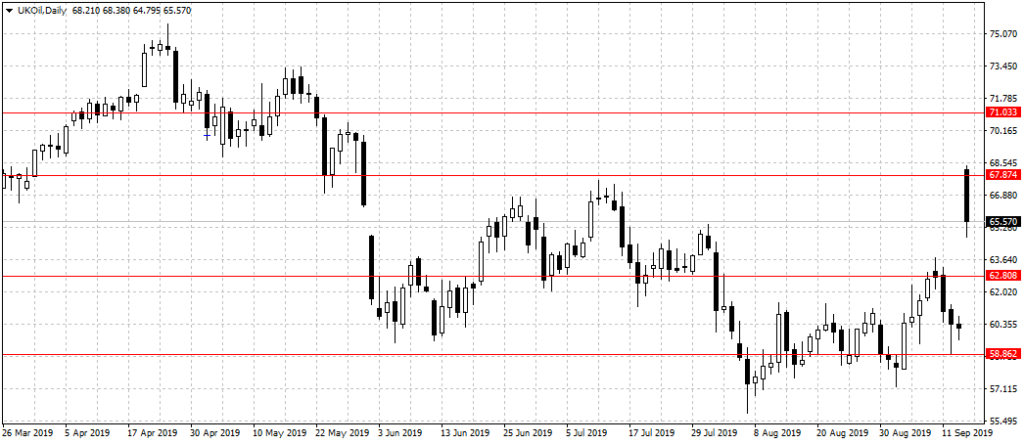Economy
Oil Prices Jump Most After Saudi Arabia Attacks
- Oil Prices Jump Most on Monday After Saudi Attacks
Oil prices jumped the most on record following Saudi Arabia attacks that erased over 5 million barrels per day from the world’s largest crude oil exporter.
Iran-backed Houthi rebels in Yemen had attacked the world’s largest crude oil processing plant, Abqaiq plant, in Saudi Arabia on Saturday to disrupt over 5 million barrels per day or 5 percent of global crude oil production.
Brent crude oil, against which Nigerian oil is measured, rose almost 20 percent on Monday during Asian trading session to $71 a barrel before pulling back to $65.57 a barrel as shown below.
 OPEC had predicted last week that crude oil demand would drop by 60,000 barrels per day in 2020. However, with Saudi Arabia now over 5 million barrels per day behind in production capacity, Brent crude oil is expected to remain above $60 a barrel pending when the kingdom is able to fix the damaged section of Abqaiq plant.
OPEC had predicted last week that crude oil demand would drop by 60,000 barrels per day in 2020. However, with Saudi Arabia now over 5 million barrels per day behind in production capacity, Brent crude oil is expected to remain above $60 a barrel pending when the kingdom is able to fix the damaged section of Abqaiq plant.
Accordingly, this would boost Nigeria’s foreign exchange reserves and strengthens the Central Bank of Nigeria’s ability to support the Naira while simultaneously aiding the banking and oil and gas sectors overall outlook.
The Federal Government had fixed crude oil benchmark for 2019 budget at $60 a barrel and recently set 2020 benchmark at $55, saying its the most realistic going into 2020.
With Goldman Sachs predicting that crude oil could rise as much as $75 a barrel, Nigeria’s foreign reserves could receive a substantial boost after plunging to six months low of $42.8 billion last week.
“An extreme net outage of a 4 mb/d (million barrels per day) for more than three months would likely bring prices above $75/bbl to trigger both large shale supply and demand responses,” Goldman Sachs predicted.
The US West Texas Intermediate (WTI) also jumped $53.99 a barrel to $63.19 during the Asian trading session on Monday.